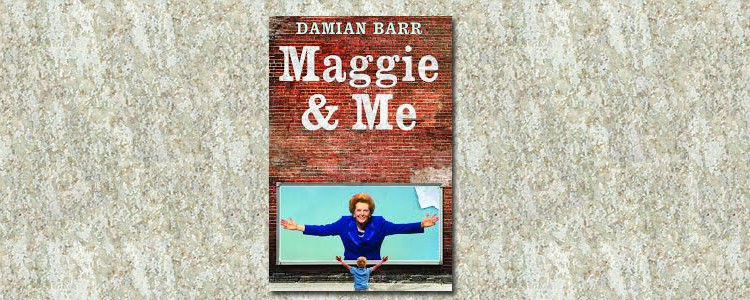Elton John’s “Me”
I read Elton John’s autobiography Me that has been written with the assistance of journalist Alexis Petridis. It is so full of enjoyable trivia about the music scene. There is not much about the business of music except for passing references to his hunt for a reliable manager or how he founded his own company, Rocket, and discovered new talent. He readily admits he was good at discovering talent and not necessarily nurturing new talent. He talks about his upbringing and never once is his family left out of the narrative. They are always present in his story. It is not as if stardom went to his mind and he forgot his roots.
It is also a memoir that documents his coming out as gay and then his stratospheric rise as a performer. Outrageous acts that helped him become more of the man he was. It also points out that gayness and being gay was not fashionable then as it is now and yet when he came out to his friends or dressed flamboyantly, the circles he moved in did not bat an eyelid. Interestingly he was always so astonished at his meteoric fame that when he began to hobnob with the rich and famous, he could not get over the excitement. A memorable line in the book is about the door of his green room opening and musicians of The Band trooping in. He was astonished. He says it was as if the record sleeves of his music collection had come to life. There are so many instances like this. All along it is so obvious that he simply had the talent to play the piano and he had no qualms catering to the masses as long as it made Bernie Taupin and him money. Even so, they were very critical of some of their very commercially successful songs and albums.
What I find extraordinary is the confident voice. Also he has no problem damning people. I do not know if it is that he has been more than fifty years at the top of his profession that he really could not care less about what others think of him. He has a very refreshing way of talking except that after a while it begins to pall and you begin to wonder when will the showman be done with this gig. Even his arguments with his mother and her bad behaviour on the day of his civil partnership with David Furnish is so much domestic drama detail. Quite unnecessary. It is of course delightful to come across anecdotes of Elton John doing drugs with John Lennon in a hotel in USA when there is a knock on the door. It is Andy Warhol which astounds Elton John who is still very starry eyed about the business but John Lennon does not allow Elton John to open the door as Warhol is known to always carry a camera and Lennon did not want a picture of two rock stars doing drugs becoming known publicly. There is another delightful one of Elton John and his then partner sitting by their swimming pool in their London home when they spotted an old lady cycle up their driveway. They thought she looked very much like Katherine Hepburn. And lo and behold, it was her. She had been told by a neighbour, whose guest she was, go across to Elton John’s home where you can use his swimming pool. 🙂
I wish there had been an interview or an essay by the Guardian journalist who helped ghost write this book. He has captured Elton John’s voice marvellously well. But there are so many questions I would like to know for instance, how on earth did Elton John remember so many details over the past decades? How much of this is really accurate? Did he research this for a while as a passing reference to his being awarded a star on Hollywood Walk of Fame is available on YouTube? How long was this book in the making? How many interview sessions and how many hours of tape were recorded? How many pages of transcript were there? This is the kind of autobiography that Richard Holmes is not exactly fond of the step-by-step account of a person’s life but I suppose a super star’s life cannot be hid. It is so much gossip and at the same time I get the feeling that much of the gossipy sections of the book are mainly about those who are long dead and gone and cannot really speak up for themselves.
On the other hand, compare this autobiography with that of Karan Johar. Both are showmen. Both had their autobiographies ghost written. These books were created after innumerable interview sessions. But Elton John’s maybe frivolous and champagne chatter but it is definitely not insipidly thin as Karan Johar’s book is. I also liked the fact that Elton John is respects himself tremendously — as it should be. In his first live-in relationship, his partner was violent and was known to have a bad temper. Elton John tolerated him because he was in love. But the day the partner hit Elton in their own home and Elton John’s nose was bleeding and face was scratched, Elton John swore he would not remain in an abusive relationship. The self-realisation of a DV victim is so critical irrespective of genders.
I would think an ideal book launch or a panel discussion should be between The Boss and Elton John. Both of them have written autobiographies that seem to ring true. Bruce Springsteen’s biography is stupendous especially his account of his childhood. Both musicians come from tough backgrounds, the Boss more than Elton John. Yet they were astounding successes and it would be fascinating to hear them in conversation with each other about deciding on how much of their life should they make public, what is the best balance to strike, is less more or do you give your fan base more or less how you perform on stage etc. It could be moderated by another book man who comes from as impoverished circumstances as Bruce Springsteen, Damian Barr, and he too has written a tremendous memoir.
Regrettably except for a stray reference and that was because the paper dedicated a section to “celebrity memoirs”, Me has been overlooked in most year-end recommended reading lists. Sad. Nevertheless, read it for yourself. It is a rollicking read!
6 Dec 2019







